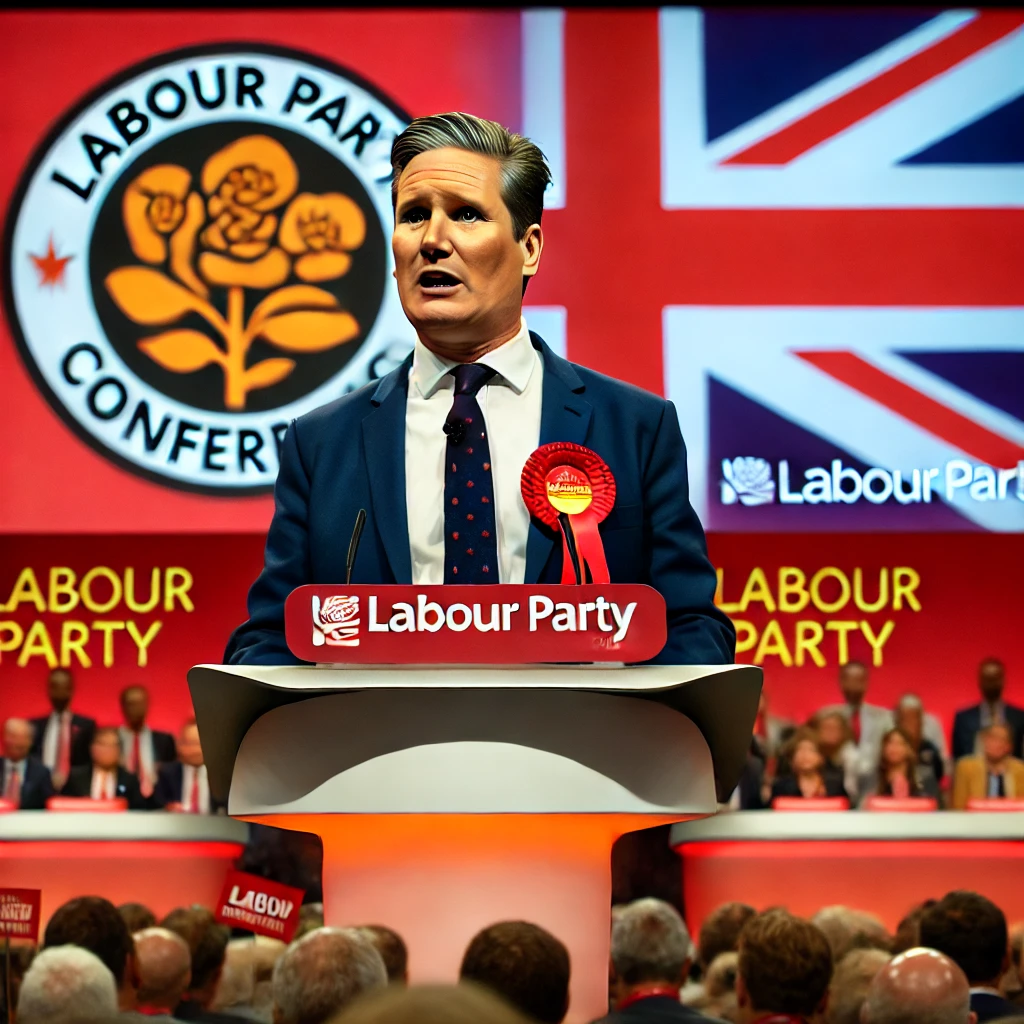Introduction
Keir Starmer’s transformation from a renowned barrister to the leader of the Labour Party is a compelling story of dedication, ambition, and resilience. This article delves into his early life, legal achievements, political rise, and his vision for the UK’s future. Understanding Keir Starmer’s journey provides insight into his impact on British politics and his potential legacy.
Early Beginnings
Starmer’s Early Life
Keir Starmer was born in London in 1962. He grew up in Oxted, Surrey, in a working-class family. His father was a toolmaker, and his mother was a nurse. These humble beginnings shaped Starmer’s values and work ethic.
Latest Update: In recent interviews, Starmer has spoken about how his family’s struggles during his childhood have fueled his passion for social justice and equality.
Early Influences
Several early influences played a crucial role in Starmer’s development. His interest in law and politics was sparked by his experiences growing up in a politically aware household. His parents’ commitment to public service deeply influenced his career path.
Legal Achievements
Legal Education
Keir Starmer attended Reigate Grammar School and later studied law at Leeds University. He completed his postgraduate studies at St Edmund Hall, Oxford. His academic journey was marked by notable achievements and a strong focus on human rights law.
Barrister Career
Keir Starmer started his career as a barrister in 1987, Starmer quickly made a name for himself. He worked on significant cases, including the McLibel case and the Helen Steel and David Morris vs. McDonald’s Corporation case. His contributions to human rights law and public service were widely recognized.
Latest Update: Recently, Starmer’s legal expertise was called upon in discussions about reforming the UK’s judicial system, particularly focusing on access to justice for marginalized communities.
Political Ambitions
Joining Labour Party
Motivated by a desire to effect change, Keir Starmer joined the Labour Party in the 1990s. He took on various roles within the party, showcasing his dedication to social justice and equality.
Political Vision
Starmer’s political vision centers on progressive policies and social reform. He advocates for economic equality, strong public services, and a fairer society. His key policies reflect these values, aiming to address systemic issues in the UK.
Becoming Leader
Leadership Style
Keir Starmer leadership style is characterized by pragmatism and a focus on unifying the party. He emphasizes the importance of evidence-based policies and constructive dialogue within the Labour Party.
Latest Update: Starmer’s recent speeches highlight his commitment to building a cohesive party capable of addressing modern challenges, from climate change to economic disparity.
Key Policies and Reforms
Under Starmer’s leadership, the Labour Party has introduced several significant policies. These include plans for economic recovery, climate change mitigation, and social justice reforms. His approach aims to position Labour as a credible alternative to the current government.
Major Policies:
- Economic Recovery Plan: Focuses on supporting small businesses, creating jobs, and investing in green technology.
- Climate Change Mitigation: Aims to achieve net-zero carbon emissions by 2050 through renewable energy investments and stricter environmental regulations.
- Social Justice Reforms: Includes expanding access to quality education, healthcare, and affordable housing.
Rules and Regulations:
- Economic Policies: Implementation of tax incentives for green businesses, increased funding for public services, and financial support for low-income families.
- Climate Policies: Enforcement of emission reduction targets, subsidies for renewable energy projects, and penalties for non-compliance with environmental standards.
- Social Policies: Legal frameworks ensuring equal access to education and healthcare, and regulations promoting affordable housing development.
Challenges and Achievements
Political Challenges
Starmer has faced numerous challenges in his political career. From internal party divisions to public scrutiny, he has navigated these obstacles with determination. His strategies often involve consensus-building and strategic planning.
Latest Update: Recent challenges include navigating the post-Brexit political landscape and addressing the economic fallout from the COVID-19 pandemic. Starmer’s leadership during these times has been pivotal in shaping the Labour Party’s response.
Notable Achievements
Despite these challenges, Starmer has achieved significant milestones. His efforts in modernizing the Labour Party and his contributions to public policy have earned him recognition. His achievements highlight his commitment to serving the public.
Major Events and Achievements:
- Leadership Election Win (2020): Successfully elected as Labour Party leader.
- COVID-19 Response: Advocated for comprehensive support measures for businesses and individuals affected by the pandemic.
- Brexit Negotiations: Played a key role in shaping Labour’s stance on Brexit, emphasizing the need for a fair deal.
- Climate Action Plan: Launched an ambitious plan to tackle climate change, gaining support from environmental groups.
- Social Justice Initiatives: Implemented policies aimed at reducing inequality and improving access to essential services.
Vision for the Future
Future Goals
Looking ahead, Starmer aims to implement policies that address the UK’s pressing issues. His goals include enhancing economic stability, promoting social justice, and ensuring environmental sustainability. These ambitions reflect his dedication to building a better future for all.
Latest Update: Starmer recently outlined his vision for a “New Britain,” focusing on rebuilding the economy post-pandemic and investing in green infrastructure.
Impact on British Politics
Keir Starmer’s potential long-term impact on British politics is significant. His focus on progressive reform and party unity positions him as a transformative leader. Predictions for his future trajectory suggest continued influence and potential leadership roles.
Strategies and Tips:
- Consensus Building: Engage with all factions within the party to build a unified front.
- Evidence-Based Policies: Ensure that all policies are backed by solid research and data.
- Public Engagement: Maintain a strong connection with the public through regular communication and community involvement.
- Adaptability: Be prepared to adapt strategies based on changing political and social landscapes.
- Transparency: Foster trust through transparent decision-making processes.
Personal Insights
Personal Life
Balancing a demanding career with personal life is challenging. Starmer is married to Victoria Alexander, a solicitor. They have two children. Despite his busy schedule, he emphasizes the importance of family and personal well-being.
Latest Update: In a recent interview, Starmer discussed how he manages to spend quality time with his family despite his political commitments, emphasizing the importance of work-life balance.
Motivations and Values
Starmer’s core motivations are driven by a desire to make a positive impact. His values, rooted in social justice and equality, guide his decisions and actions. These principles have been a constant throughout his career.
Public Perception
Media Coverage
Media portrayal of Starmer has been varied. Analyzing coverage provides insight into his public image and the challenges he faces. Positive media representation often focuses on his legal expertise and commitment to public service.
Latest Update: Recent media coverage has highlighted Starmer’s role in navigating the Labour Party through challenging times, with a focus on his leadership during the pandemic and his stance on key issues like climate change and social justice.
Public Engagement
Starmer’s approach to engaging with the public is proactive. He frequently participates in public forums and delivers speeches to connect with constituents. Notable public appearances, such as his speeches at the Labour Party conference, highlight his communication skills.
Table: Keir Starmer’s Career Milestones
| Year | Milestone |
|---|---|
| 1987 | Started career as a barrister |
| 1990s | Joined the Labour Party |
| 2008-2013 | Director of Public Prosecutions |
| 2015 | Elected as MP for Holborn and St Pancras |
| 2020 | Elected Leader of the Labour Party |
Conclusion
Keir Starmer’s journey from barrister to Labour Party leader is a story of perseverance and dedication. His early life, legal achievements, political rise, and vision for the future reflect his commitment to making a difference. As Starmer continues to shape the Labour Party and influence British politics, his legacy will likely be one of transformative leadership and progressive change.

